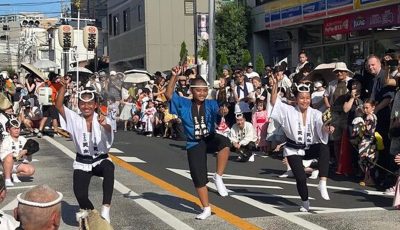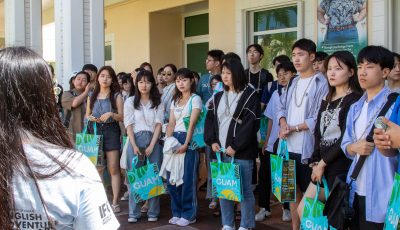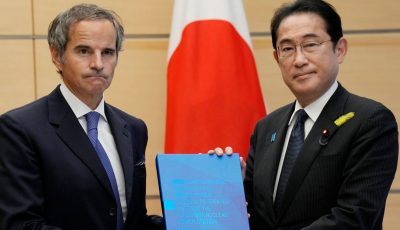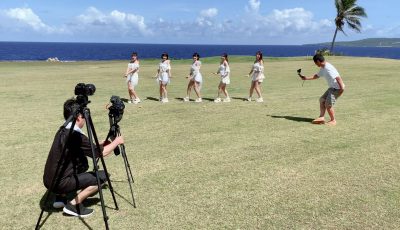Ignacio, the blind soldier
The Blind Soldier was an elementary school play during the Japanese time here on Saipan. The play was about a blind Japanese soldier and his severely wounded companion. The problem was that the wounded soldier could not get up and about. And his companion soldier was blind. They wanted to reach their regiment or at least a field clinic for treatment. So the problem was how the two soldiers could reach their group or a field clinic. The two disabled soldiers came up with a brilliant idea on how to move about regardless of their being severely handicapped. The blind solder was to carry on his back the severely wounded soldier. The wounded soldier was to give the blind guy direction where to go or to avoid obstacles. The idea worked.
And my brother’s class performed the play, with my brother Achu’ as the blind soldier, and one of his classmate the wounded soldier, giving direction as to where to move and what to avoid. The performance, with a battlefield background sound and music, was considered splendid and realistic by those who attended the play. Not long afterward, my brother was invited to Aomori city as a reward for his splendid performance. He went there and he said he enjoyed his travel to Japan and his stay at Aomori. He told us he was thankful for being invited to Aomori. He added that he really enjoyed the crispy, sweet apple harvested in Aomori. He pointed out that Aomori is the land of great apple and that he would like to see Aomori and its apple again.
Achu’ was the oldest boy in our family. He was quite smart, serious, and rational. He learned to play the violin while still young. My oldest sister, Mariquita, would help him whenever Achu’ encountered a difficult musical phrase. Mariquita played piano, which she learned while a postulant in the Mercedarian convent. The classical music that Achu’ learned in his younger days stuck with him, and he would whistle those tunes every so often. My sister Mariquita said that Achu’s favorite composer was Johannes Brahm. And it did make sense. Brahm’s musical platform involved intensive violin performance, the gypsy tempo. Of course he also liked music by other composers that involved the violin since he was learning to play the instrument. His gang, until his death, was Denang, my second oldest sister.
Denang was a bundle of rascality, and full of it. She was a tree-climbing clown, while Achu’ was the serious one. Many years after the end of World War II, Achu’ dreamed of visiting the beautiful Aomori he had seen in his youth. The Aomori of the crispy, sweet apple. That’s what he would say. So he started saving his money so that he could fulfill his dream of visiting Aomori before he died. This time he would take his wife, Maria, to show her the beautiful Aomori. He would have Maria try the crisp, sweet Aomori apple, and a tour of the city. He would take her on the train like he did coming over to the city. He remembered every railroad track that went to Aomori. Achu’ would say that Aomori was pretty and cool, and Maria would say, “yes.” And the apple was the sweetest in the world, and Maria would say, “yes.”
Because his performance was considered outstanding as the blind Japanese soldier taking direction from his wounded companion that he was carrying “piggy-backed,” my brother was invited by some Japanese to go to Aomori. And he fulfilled his dream of going to Aomori one more time. My brother, Achu’, died not long ago after a long illness.
Rudolfo M. Sablan
Garapan, Saipan



























